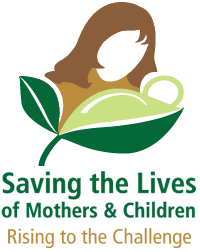 MDGs 4 and 5 aim to reduce child mortality and improve maternal health, respectively27 January 2013 – Addressing the health of mothers and children is at the heart of the Millennium Development Goals (MDGs) and health and development index. It is the subject and focus of several United Nations and WHO resolutions adopted by all Member States.
MDGs 4 and 5 aim to reduce child mortality and improve maternal health, respectively27 January 2013 – Addressing the health of mothers and children is at the heart of the Millennium Development Goals (MDGs) and health and development index. It is the subject and focus of several United Nations and WHO resolutions adopted by all Member States.
To reduce mortality among mothers and children, WHO, UNICEF and the United Nations Population Fund have jointly organized a high-level meeting "Saving the lives of mothers and children: accelerating progress towards achieving MDGs 4 and 5 in the Region". The meeting will take place in Dubai, United Arab Emirates, from 29 to 30 January 2013, under the patronage of His Highness Sheikh Mohammed Bin Rashid Al Maktoum, Vice-President and Prime Minister of the United Arab Emirates and Ruler of Dubai.
The high-level meeting will be in the form of a global forum featuring unique partnerships to address the increase in mother and child mortality rates in the Eastern Mediterranean Region.
The Eastern Mediterranean Region is a young region where children up to 18 years old constitute more than 40% of the population (244 million children). Children under 5 years of age represent 12% (73 million children), and women of childbearing age 29%. Both young children and women are highly vulnerable groups for which MDGs 4 and 5, respectively, and indicators under other MDGs, were set to specifically address the health of these groups; vital for national development.
It is estimated that 923 000 children under 5 years of age and around 39 000 women of childbearing age still die every year in the Region as a result of common childhood diseases and pregnancy-related complications. Mortality levels are particularly high in poor, rural and underserved areas, among malnourished children and pregnant adolescents.
As part of the preparations leading up to the high-level meeting, a 2-day workshop will be held on 17 and 18 December 2012. This workshop aims to finalize country plans to identify key national interventions. The workshop also aims to share information and experiences on existing national maternal and child health policies and plans in 10 priority countries of the Region. A special envoy mission was conducted to these countries to galvanize action towards country commitment and active engagement. These 10 countries account for over 95% of all children under the age of 5 and maternal deaths in the Region, and thus are regarded as MDG 4 and 5 priority countries. They include: Afghanistan, Djibouti, Egypt, Iraq, Morocco, Pakistan, Sudan, South Sudan, Somalia and Yemen.
While some countries have made remarkable progress in collecting and using data for decision-making, there is a strong need in other countries, especially those with weak health systems, to improve their capacity to gather information on results which can demonstrate the impact of investments. Thus, accelerated efforts are needed to implement effective interventions to achieve the targets of the MDGs and have in place systems to gather information to monitor outcomes.
While more needs to be done, countries have officially committed through their governments to seriously tackle these vital issues, with clear targets to be reached by 2015.



